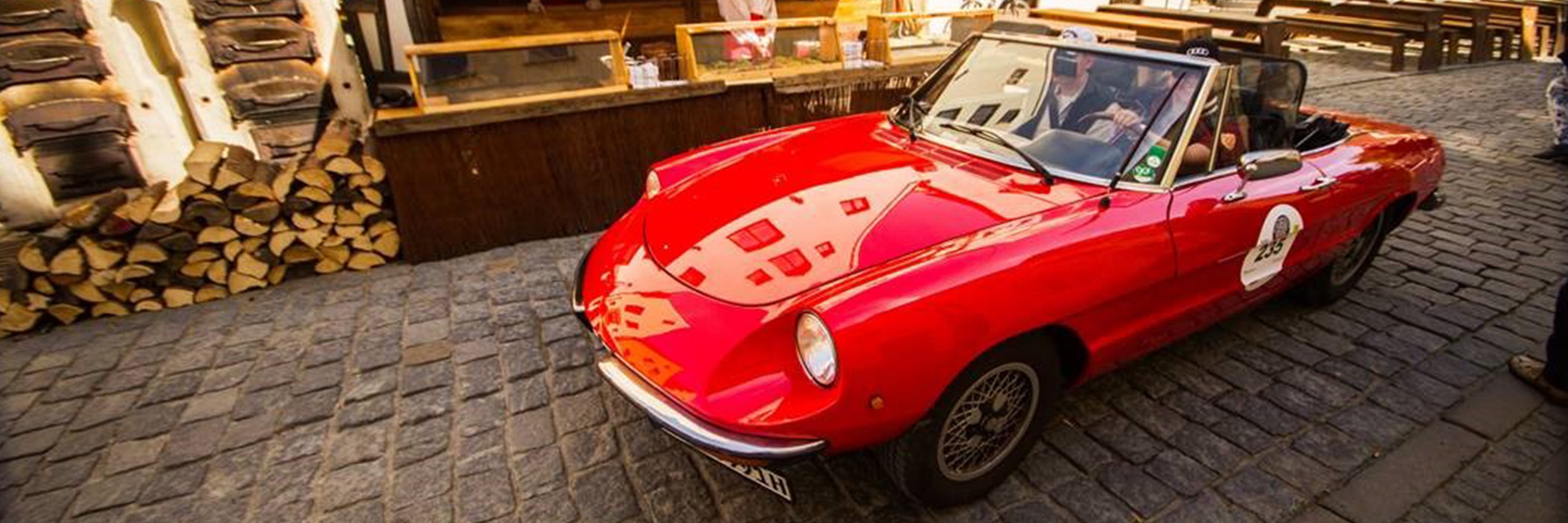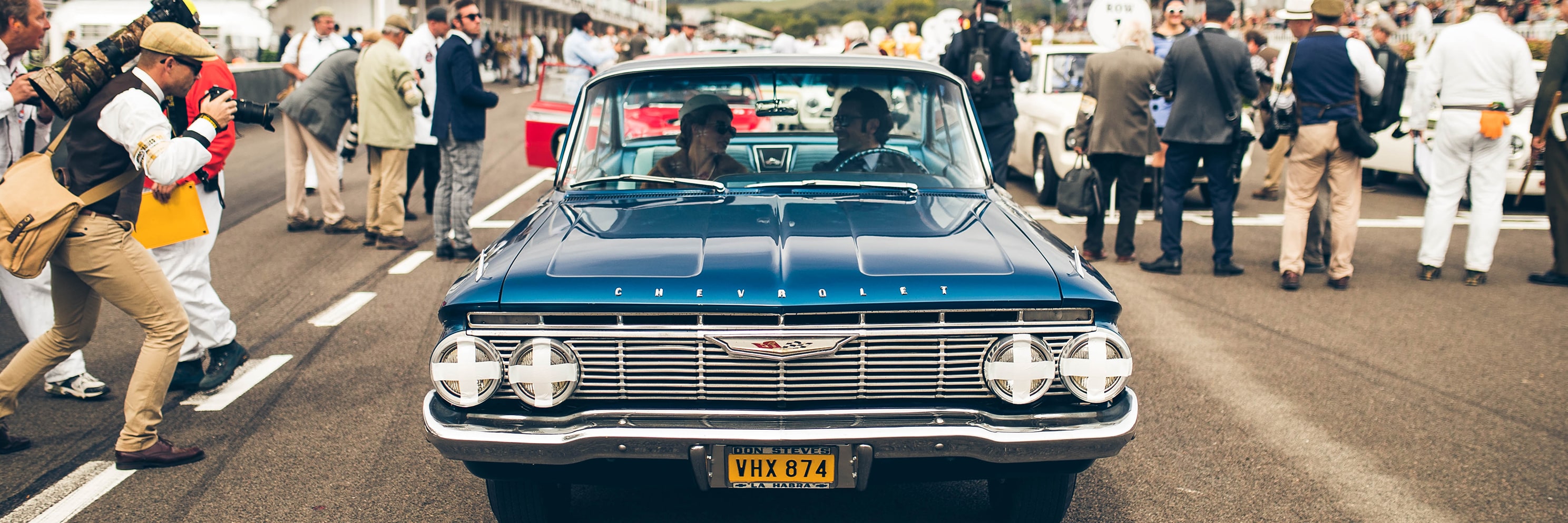Is now the time to invest in a classic car?

Earlier this year, a 1963 Ferrari GTO sold for $70 million. It is believed to be the highest price ever paid for a car. This spectacular deal prompted many a car aficionado to ponder whether the classic car market was still worth a punt after a few years of lacklustre sales.
“People had started to worry that maybe the market had reached a peak,” explains Ed Foster, a keen motor enthusiast himself and deputy head of motorsport content at Goodwood. “And then that deal happened.”
Buying a classic car has been, to the delight of many a motor head, not just something one does in midlife crisis moment, but a satisfyingly sound investment. Between 2007 and 2017, classic cars powered ahead as one of the top-ranking alternative investment assets with growth of 192%, outperforming fine art and wine, according to global art insurance specialist AXA Art. By way of comparison, the S&P 500 and FTSE All-Share, in local currency terms, from the beginning of 2007 until the end of 2017 returned circa 269% and 100% respectively. (Source: Bloomberg)
But prices started to soften in late 2017, sparking concerns the run was over. A report by Coutts published in September 2017 found the value of classic cars fell 10.4% in the previous 12 months as collectors appeared to be turning their attentions to other assets, such as musical instruments and photography.
Could the Ferrari GTO deal herald a return of the classic car as an investment? Should we all be driving into the sunset in a beautiful set of wheels, our pockets empty but our hearts gleaming with the promise of a hefty profit further down the line?
“The reality is that, as with any investment class, there are cars that will always do well and others that should be avoided,” explains Foster. “It is a murky market and you need to know what you are looking for.”
Classic cars that do well tend to have a story behind them. Foster recently invested in a Chevrolet Impala that was previously owned by the legendary American racing driver Dan Gurney. The car was famously shipped over from America to do battle against a pack of Jaguar sedans in the 1961 British Saloon Car Championship round at Silverstone.
It was a thrilling race. Gurney led every lap bar the last two, when a rear wheel came off and he was forced to retire. Determined to give it another go, Gurney tried to enter the next race at Silverstone having invested in some stronger NASCAR wheels, but by this time the British teams were running scared; they had no intention of letting a big American muscle car come along and win. The Impala was rumoured to have been banned from entering, or at least the paperwork proved to be unnecessarily complicated, and a furious Gurney ended up selling the car to a friend in Australia, where it remained until only recently.
Restoring a car of this nature can be costly: Foster charged Jordan Racing Team with returning the car to the exact specification Gurney raced it in and the 1.6-tonne car led the St Mary’s Trophy cars onto the grid at this year’s Goodwood Revival.
“It’s been a tricky project, we’ve had to fly a lot of parts in from America and costs have mounted up, but it’s been worth it and (so far!) we are on budget. Unlike owning a painting, this is something I will be able to use again and again and enjoy for many years.”

So, what are the hot cars of the moment? For many, the classics of the 1940s, ‘50s, and ‘60s have increased so much in value they are out of reach for all but those with very deep pockets. Which is why the market for 1980s and 1990s classics continues to thrive: these are fast, fun, eminently usable cars and there are some great bargains to be had.
The Porsche Boxster 986, launched in 1996, is a top pick, according to Paul Michaels of Hexagon Classics in London. “Don’t expect major appreciation,” Michaels told GQ: “But buy a low mileage, loved car and it certainly won’t lose money.” Another car that Michaels believes is undervalued is the Alfa Spider S4 (1990- 93), worth around £15,000, roughly half the value of its more famous relation the Duetto but just as much fun.
Meanwhile prices for early Land Rovers have already gone bonkers, and with 2018 marking the 70th anniversary of the marque (and the reveal of the final Defender) they won’t be getting any cheaper. But you can buy a Belgian-built Minerva Series 1 for half the price of its Solihull relation. It is said they drive better, too, thanks to a steel body that helps damp the ride.
Aside from the obvious, functional, advantage of being able to drive around in your prized investment, there are tax benefits to owning a vintage motor. Classic cars don’t attract capital gains tax if you make a profit on sale, as they are classed as ‘wasting assets’, which have a predicted useful life of less than 50 years – even if they are still going strong after this time.
More importantly, the beauty of a classic car is that owning it brings hours of fun. You can’t drive an Old Master painting down a winding country lane on a sunny day. And once you’ve drunk the Chateau Latour, it’s, well, gone. A beautiful vintage car will bring a smile to your face, will keep the mechanically-minded occupied for hours, and has the added practical benefit of being able to transport you from A to B. You could even use it for the school run.
 Four-time IndyCar Champion and three-time Indy 500 winner, Dario Franchitti takes to the wheel of Ed’s Impala at the Goodwood Revival this year.
Four-time IndyCar Champion and three-time Indy 500 winner, Dario Franchitti takes to the wheel of Ed’s Impala at the Goodwood Revival this year.

Photos courtesy of Goodwood
Strabens Hall advise on all aspects of investment. If you would like to meet us please contact starthere@strabenshall.co.uk
Strabens Hall Ltd is authorised and regulated by the Financial Conduct Authority (“FCA”). Our FCA registration details are set out in the FCA Register under firm reference number 461795 (www.fca.org.uk). Strabens Hall Ltd is registered in England and Wales (registered number 06015275) and our registered office is 5 – 9 Eden Street, Kingston upon Thames, Surrey, United Kingdom, KT1 1BQ.
Some of our services are not regulated by the FCA. Before you engage us in any work, we will outline which of those services are and are not regulated by the FCA to enable you to make a fully informed decision.
The Financial Ombudsman Service (FOS) is an agency for arbitrating on unresolved complaints between regulated firms and their clients. All complaints for referral should be submitted to Strabens Hall Ltd prior to approaching the Financial Ombudsman Service (FOS). Full details can be found on its website at www.financial-ombudsman.org.uk.


